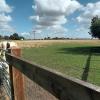Anglian Water has a wide programme of support for catchment management working with local farmers. Find out more about activities in the videos and resources below:
Alternatives to metaldehyde for slug control
Measuring Soil Health - Philip Wright, Phil Jarvis and Joanne Pollock discuss the three components of healthy soil - physical structure, biology and chemistry.
Essentials of Soil Management - Philip Wright & Rob Holland discuss the value of plant roots to improve soil structure
Managing livestock around watercourses




